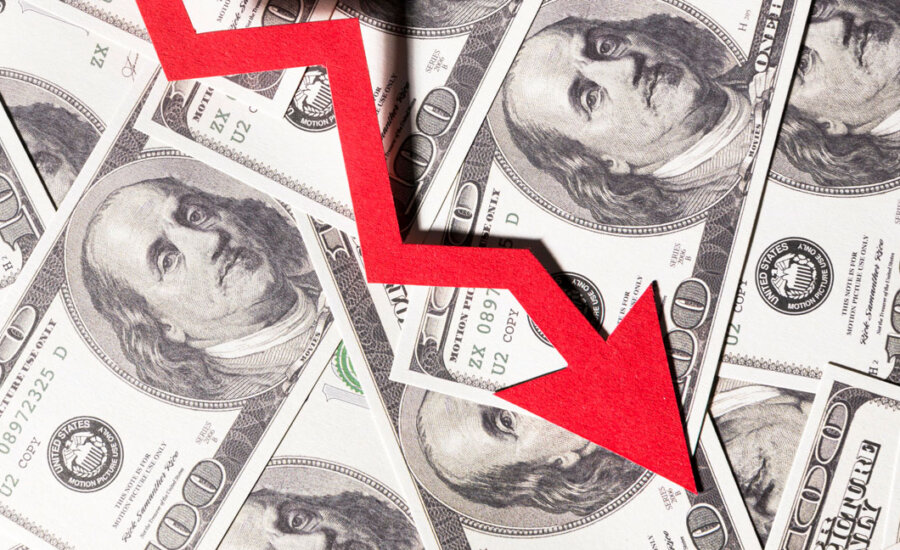Making sense of the markets this week: August 6, 2023
Big tech continues to dominate the U.S. market, being a landlord is still good business, Shopify pins hopes on AI innovation, and U.S. debt downgrade surprises markets.
Advertisement
Big tech continues to dominate the U.S. market, being a landlord is still good business, Shopify pins hopes on AI innovation, and U.S. debt downgrade surprises markets.

Kyle Prevost, editor of Million Dollar Journey and founder of the Canadian Financial Summit, shares financial headlines and offers context for Canadian investors.
Big tech finished earnings season with a bang on Thursday as Amazon absolutely crushed earnings expectations, while Apple, PayPal, and Airbnb offered more modest good news. All figures in this section are in U.S. dollars.
Two of Canada’s most prominent real estate investment trusts (REITs) released their quarterly reports this week.
As one of Toronto’s largest landlords, RioCan is closely watching its small business segment for signs of interest rate fatigue. CEO Jonathan Gitlin stated that while he expects some small businesses to “suffer and close,” the REIT’s portfolio of grocers, pharmacies, dollar stores, and liquor stores was in very stable condition. For more information, check out my article on Canadian REITs for 2023 at MillionDollarJourney.ca.
It was a mixed bag of news for Canada’s fourth-largest company based on market cap when it released earnings on Wednesday. Bottom-line numbers were solid, as Shopify (SHOP/TSX/NYSE) reported earnings per share of USD$0.14 (versus USD$0.05 predicted) and revenues of USD$1.69 billion (versus USD$1.63 billion predicted).
Despite showing significant improvement in year-over-year metrics, Shopify’s share price was down more than 5% on Thursday.
Shopify continued to execute its game plan to streamline operations by completing the sale of Deliverr Inc., as well as cutting about 30% of its workforce over the last two years.
CFO Jeff Hoffmeister stated that severance pay and a loss on the Deliverr sale had led to an overall operating loss of US$1.6 billion on the quarter, despite a 17% year-over-year increase in gross merchandise volume and a 21% increase in subscriptions-related revenue.
Much like every company these days, Shopify was quick to promote a lot of artificial intelligence-related opportunities without being specific about how exactly those would translate into profits. While we can see how Shopify is ideally positioned to benefit from increased data on customer sales—and could theoretically use AI to optimize based on that data advantage—it remains to be seen just what effect all this could have on the bottom line. Using AI to auto-write email subject lines and to create a chatbot called “Sidekick” sound like fun ideas, but the path to increased profits!?
Shopify president Harley Finkelstein used the earnings call to say, “The new shape of Shopify is enabling us to make faster decisions, flex with the rapid pace of technology and deliver innovative solutions that increase our merchants’ odds of success […] Even after 17 years, and all the changes we have made recently, we know the opportunities for Shopify are only growing.”
For more information on Canada’s largest tech company, see my analysis of Shopify at MillionDollarJourney.ca.
In other Canadian earnings news, communications and media company Thomson Reuters (TRI/TSX) also posted an earnings beat with an earnings per share of USD$0.84 (versus US$0.76 predicted) and revenues of USD$1.65 billion (versus US$1.66 billion expected). Shares were down more than 4% on Thursday.
As we predicted back in May, the political shenanigans down in the U.S. have had quite negative economic consequences.
Fitch Ratings (one of the two large U.S. ratings agencies) downgraded U.S. debt one level, from AAA (the highest standard) to AA+ on Tuesday.
Fitch stated, “The repeated debt-limit political standoffs and last-minute resolutions have eroded confidence in fiscal management.”
It’s no mystery to us why a ratings agency would look at the repeated brinkmanship exhibited by the U.S.-elected representatives and decide that the U.S. government no longer represents a rock-solid credit repayment risk. Unlike most debt downgrade situations, the risk here is not that the U.S.A. lacks the fiscal capacity to repay debt (it definitely has the economic firepower to pay its creditors), but the political risk is undeniable at this point.
The credit downgrade cut a hard-charging American stock market off at the knees, as the S&P 500 took a 1.4% hit on Wednesday after the announcement.
While we think Fitch sent a much-needed message to American politicians with this (downgraded debt could cost the U.S. government billions in long-term borrowing costs), most prognosticators felt the immediate impact would be minimal.
Warren Buffett went so far as to say, “There are some things people shouldn’t worry about. This is one,” adding that, “The dollar is the reserve currency of the world, and everybody knows it.”
Perhaps we don’t need to worry about this credit downgrade in and of itself.
That said, we think it would be naive to continue to ignore the long-term economic effects of electing representatives more intent on appearing to be “rebellious political mavericks” than they are focused on actually making the hard choices necessary to provide good government.
The market appears to agree, as despite 82% of S&P 500 companies beating earnings predictions so far this quarter (with 80% of companies having reported), the index continued to trend downward on Thursday but seemed to be recovering as we went to press Friday morning.
Share this article Share on Facebook Share on Twitter Share on Linkedin Share on Reddit Share on Email